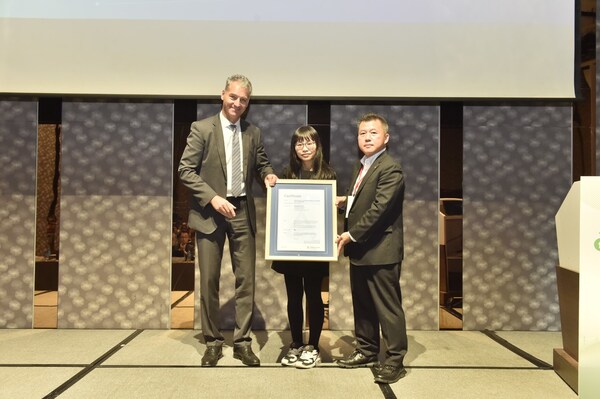TAIPEI, Nov. 17, 2025 /PRNewswire/ — In 2025, SURTEC Industries, Inc. became one of Taiwan’s early adopters to earn TÜV Rheinland’s Zero Waste to Landfill (ZWTL) certification. This milestone marks the company’s successful establishment of a compliant waste management system, implementation of zero-landfill measures, and achievement of the one-star certification level. Looking ahead, SURTEC plans to further improve its waste diversion rate.
Established in 1985, SURTEC is a leading company in copper and fiber structured cabling and home networking solutions. To meet rising customer expectations for sustainability, the company launched its Zero Waste to Landfill Management System program at the end of 2024. A cross-functional team was formed to enhance every stage of waste management—from generation, storage, and transport to final treatment. The certification scope covers structured cabling systems, fiber and copper connectors, cabling accessories, data cables, interior furnishing products, and safety items. During implementation, SURTEC’s management actively led cross-department engagement, introducing a rotation system so that employees could jointly maintain waste sorting and container cleanliness—strengthening a company-wide environmental culture. PET bottles were also dismantled and sorted by material, and packaging reuse programs were promoted in collaboration with suppliers.
The Zero Waste to Landfill framework helps organizations reduce waste at the source, maximize reuse and recycling, and ensure harmless treatment—minimizing landfill waste and turning waste management into resource management. It applies to a variety of sites such as factories, campuses, and industrial parks. Certified companies must achieve at least a 90% waste diversion rate through sorting, reduction, reuse, recycling, and energy recovery. Depending on the achieved diversion rate, companies receive certifications from one star (94%–96.99%) up to three star (≥99%), serving as key benchmarks of sustainable performance.
According to Shirley Zheng, General Manager of Customized Services at TÜV Rheinland Greater China, factory operations typically generate various types of waste—from household and garden waste to packaging materials and chemical residues. The zero-waste factory concept encourages employees to be part of the solution—for example, replacing yogurt with fruit in the canteen to reduce plastic cups and reuse fruit peels, digitalizing delivery forms to decrease boxes of paper records each year, and reusing food waste in wastewater plants to supplement microbial nutrients or as fertilizer in eco-gardens. These are all practical examples of turning waste into resources.
From waste reduction at the source to full resource recovery, zero-waste management demonstrates a company’s commitment to green manufacturing and environmental accountability. Beyond improving environmental awareness, it helps reduce compliance risks and operational costs, strengthening an enterprise’s long-term sustainability roadmap.



